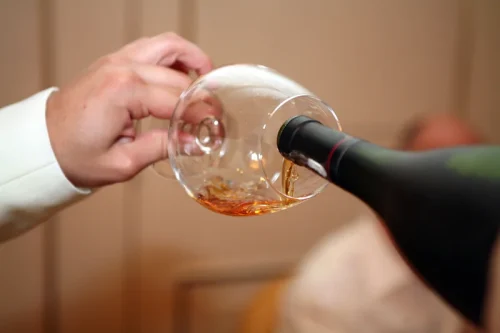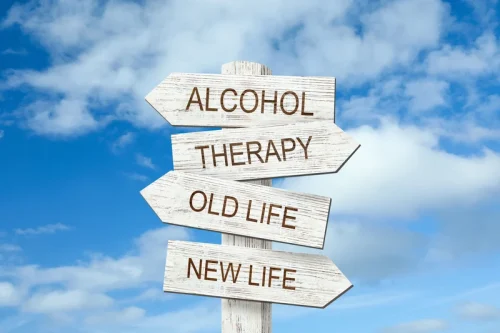
Often people have more sex, and enjoy it more, when they’re sober. Alcohol interferes with your ability to feel sexual stimulation and can delay orgasms. People may notice they have more energy, so sexual function can be improved by stopping drinking. Heavy drinkers usually have tell-tale signs; they often look red-faced or puffy with bags under their eyes. A day and a half after quitting alcohol, withdrawal symptoms will intensify.
Is Alcohol Bad for Your Skin?
- They impact our jobs, our social connections and ultimately the time we get to spend doing.
- Quitting alcohol won’t just protect your physical health—it can also improve your mental well-being.
- One of the unexpected benefits of giving up alcohol is that you may find yourself more productive than before.
- Enjoying alcohol socially in reasonable amounts can boost your mood and help you bond with others.
Hopefully, you’ve started to experience some of those benefits from the 1 month list and it’s ok if it took a little longer than a month to notice them. When you’re not drinking, your liver is able to devote more time to its other 500 vital functions. After you stop drinking for a month, your liver fat may be reduced by up to 20%, significantly reducing your risk of cirrhosis of the liver or fatty liver disease. Within 3-7 days, withdrawal symptoms will stop for most dependent drinkers.
- Now, you are going to notice some of the benefits of not drinking alcohol.
- Clinical assessments revealed that women had higher mood scores than their male counterparts during early sobriety.
- It is essential to recognize an alcohol use disorder and treat it as early as possible to avoid damage to the brain and body.
A Month After Quitting Alcohol

For people at low risk of complications, an office visit to your primary care provider, along with at-home monitoring and virtual office visits, may suffice. People at high risk of complications should enter a short-term in-patient detox program. It can be helpful to write down your reasons for quitting and the difficulty of withdrawal while it is fresh in your mind. Alcohol can also impair your ability to get restorative rest because you’re less likely to enter REM sleep, which has been shown to increase your risk of dementia. According to the National Survey on Drug Use and Health, 9.2 million U.S. adults had both mental health disorders and a substance use disorder in 2018, yet nearly 60% did not get treatment. The practice of giving up alcohol for months contributes to the improvement of the sense of humor.

Reduced Heart Disease Risk
Make sure to take as many fruits and vegetables as possible instead of sweets or fat. Stop drinking alcohol is so far has not shown positive results in the initial days but all these symptoms are a signal that your body is recovering from alcohol addiction slowly. After half a year without drinking, you will really start to reap the rewards. Your risk of developing cancer will decrease, and your liver function will have greatly improved.
Your Liver Will Start to Repair Itself
Many people who join the abstinence movement and want to quit alcohol don’t fall within these parameters. Nevertheless, research focused on the brains of people recovering from alcoholism may still offer insight into what can happen whenever a person stops consuming alcohol. But treatment varies based on the severity of alcohol withdrawal and the likelihood what happens when you stop drinking that it could progress to severe or complicated withdrawal. It’s difficult to predict who will and who won’t experience alcohol withdrawal — and how severe it will be. When you stop consuming alcohol after prolonged, heavy use, your CNS can’t respond or regulate itself fast enough. It becomes overexcited because there’s no more alcohol to slow it down.

In addition to improving your mental well-being, it may lower your risk for some mental illness and contribute to better sleep. Alcohol can also trigger the release of chemicals called endorphins and raise levels of the “feel good” hormone dopamine. This can make you feel energetic and even extremely happy (euphoric) shortly after you drink alcohol, but the effects don’t last. Quitting alcohol for one month seems like a short time, but a 2015 study found that many people who participate in Dry January continue to drink less six months later. If the liver is loaded with work, it suffers stress that causes the rest of the metabolic activity to slow down as it has to focus its efforts on eliminating the toxic substance from the body.
- Remember that it’s important to connect with a medical professional before you stop drinking to ensure that you can go through each stage safely.
- Men, on the other hand, had less activation to emotionally charged images, including images of alcoholic beverages.
- The liver gets most of the attention when it comes to alcohol metabolism.
- But once you fall into slumber, it can wake you up repeatedly in the night.
- Within 3-7 days, withdrawal symptoms will stop for most dependent drinkers.
- However, for people who exceed recommendations in the Dietary Guidelines for Americans, he said staying away from alcohol for a month can reap changes.
- One reason for the improved moods is that your dopamine levels normalize after going sober.
This is usually when people start to feel their best after giving up alcohol. By this point, most physical withdrawal symptoms should have subsided and you should start to feel less anxious and more positive. Many of the benefits listed above such as improved memory and ability to focus and concentrate, will continue. Increased quality of sleep can have some positive effects for many people.

It’s important to be honest about your alcohol use — and any other substance use — so your provider can give you the best care. For help quitting, resources are available from the Substance Abuse and Mental Health Services Administration (SAMHSA) or the National Institute on Alcohol Abuse and Alcoholism (NIAAA). Individuals should be prepared to be uncomfortable during this period and have medical help available if needed.

Treatment Options for Alcohol Misuse & Addiction
The overall health of an individual deteriorates with time due to the huge amount of alcohol consumption that affects physical and mental health. This results in your mood swings as well which will affect your personal relationships. The mental health changes you experience when you stop drinking can include symptoms of withdrawal, difficulty sleeping, irritability, mood swings, and clearer thinking. While some of these changes can be uncomfortable for some time, they will eventually begin to improve the longer you abstain from alcohol use. Research shows that one month in, some people start to feel a sense of achievement and control over their relationship with alcohol (O de Visser & Piper, 2020). It’s important to recognise the small wins and keep an eye out for the inner critic that might downplay what you’ve done well.
